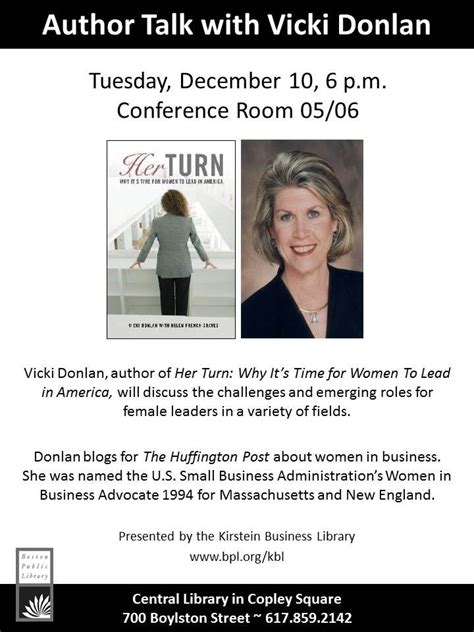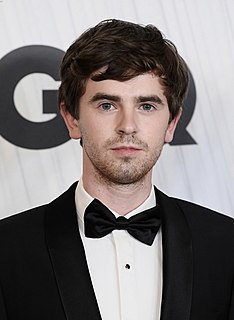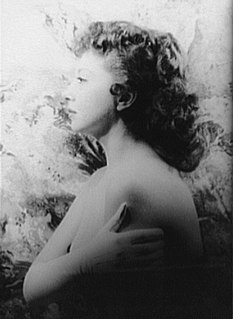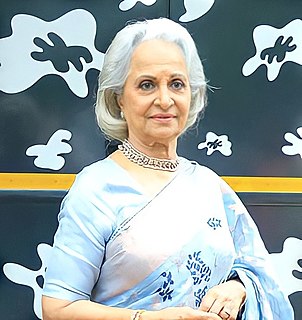A Quote by Sophie Okonedo
When I take on a role, all I tend to do is get to know the script and ask millions of questions, and keep fine tuning what I think the character is trying to say.
Related Quotes
So when I say that I think we would have a different ethical level, particularly in corporate America, if there were more women involved, I mean that what women are best at is asking questions. Women ask questions over and over again. It drives men nuts. Women tend to ask the detailed questions; they want to know the answers.
At the beginning, I thought, 'Oh, I can't criticize a singer who's doing a role that I adored... even a role I didn't do.' And then I thought, 'The heck with that! Thirty years of experience... ask the girl who did it!' And I feel that if they're not willing to take what I have to say, that's fine! But I'm going to say it.
May I ask you what these questions tend?' 'Merely to the illustration of your character,' said she, endeavouring to shake off her gravity. 'I am trying to make it out.' 'And what is your success?' She shook her head. 'I do not get on at all. I hear such different accounts of you as puzzle me exceedingly.
When I start a movie, I already feel like I'm in it. I'm not a jobbing actor anymore; most of the films I do, I'm involved with development. Some, I've taken from scratch, and worked so heavily on the script, I'm embodying a lot of the character by the time I even get close to filming, because I've asked so many of the questions that I do. There is nothing better than being able to ask all the questions, do all the work. It's when you let it go that you fly.
I don't like the way most people think. It's imprecise. I find that when parents ask me questions, they ask very imprecise questions. They say, "My kid has behavioral problems at school." Well, I have to say, "What kind of problems? Is he hitting? Is he rude? Does he rock in class?" I need to narrow questions to specifics. I am very pragmatic and intellectual, not emotional. I do get great satisfaction when a parent says, "I read your book, and it really helped me."
When people ask me what philosophy is, I say philosophy is what you do when
you don't know what the right questions are yet. Once you get the questions
right, then you go answer them, and that's typically not philosophy, that's
one science or another. Anywhere in life where you find that people aren't
quite sure what the right questions to ask are, what they're doing, then,
is philosophy.
For me, I felt bad for people asking the questions, cause you know their boss sent them out saying, 'Get me something on Mission Impossible.' And you ask the question, and it's just a polite, 'I'm not going to tell you.' Then, every so often, they'd go, 'Well, can't you just tell us a little bit?' I have to say, 'You know what guys, I'm under contract and I'm not going to tell you anything.' So you keep asking the questions and I'm just going to keep smiling. And it's hard, cause I don't want to seem rude, but it's part of my job just like it's part of their job to keep a secret.
I don't know what acting is, but I enjoy it. I think we ask too many questions of ourselves. We make too much importance of stuff. But I do say to actors when I have taught in classes, or when I sometimes do a talk to a group. I'll say, “If I never acted again, the world wouldn't stop, nor would it stop if I didn't stop acting. That's how important it is. I know it [seems] important when you're young. But I say, “Lighten up. Don't take it all so seriously.” All the gurus and teachers will take your money and run.
I had to audition for Fandango. When I read the script, the role that was interesting - so everyone thought - was the role that Costner played. He was the cool guy. And I read the script, and my representation at the time said, "That's the role you should read for." And I was like, "Really? How about I read for this other role." And they went, "Well, you're not going to get that role."
Whenever I'm giving talks, I always ask people to think of the most obscure questions because I enjoy those the most. I always get the same questions: Why does Pickwick say "plock" and will there be a movie? I like the really obscure questions because there's so much in the books. There are tons and tons of references and I like when people get the little ones and ask me about them. It's good for the audience [and also] they realize there's more there.




































